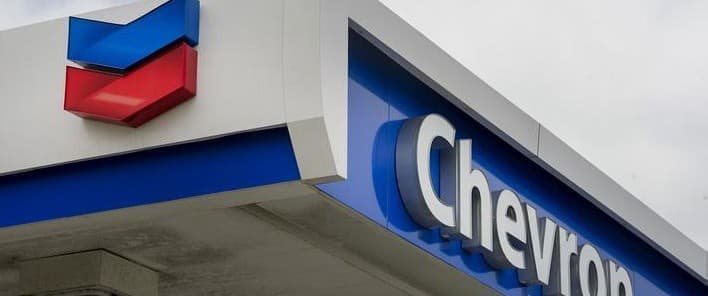Business
Chevron Signs Agreement to Develop Iraq’s Nasiriyah Oil Field

Chevron has reached an agreement in principle with Iraq’s Oil Ministry to develop the vast Nasiriyah oil field along with additional oil production and exploration sites. This announcement marks a significant milestone in the oil industry, as it follows a trend of major Western oil firms returning to Iraq after a notable withdrawal that began around seven years ago. The backdrop to this resurgence is the Oil Ministry’s attempts to reassure international companies about improved transparency and operational conditions within the country.
Western Firms Reassess Opportunities in Iraq
The recent agreement by Chevron is part of a broader pattern of renewed interest from U.S. and other Western oil companies in Iraq’s oil sector. Following ExxonMobil’s exit from the Common Seawater Supply Project (CSSP), several firms have begun to establish new partnerships in the region. Notably, ExxonMobil is reportedly in discussions with Iraqi authorities for potential new projects, while other companies have also secured exploration agreements in recent weeks.
This influx of interest is underscored by significant energy deals, such as TotalEnergies’ US$27 billion multi-project agreement and BP’s US$25 billion commitment across five oil fields. The question remains: why are these companies returning to Iraq now? The answer appears to revolve around commitments from the Iraqi government to foster a more transparent and stable business environment.
Challenges of the Past Influence Future Decisions
Historically, major oil firms like ExxonMobil have faced significant challenges in Iraq, particularly related to corruption and governance. According to Transparency International, Iraq consistently ranks among the lowest globally for corruption, a situation that has deterred foreign investment. The organization has cited issues such as bureaucratic bribery, oil smuggling, and a lack of political will to combat corruption as key factors hampering effective governance in the oil sector.
The organization concluded that “political interference in anti-corruption bodies” severely limits the government’s capacity to curb soaring corruption.
As ExxonMobil withdrew from Iraq, it highlighted the reputation risks associated with doing business under such conditions. The company sought to renegotiate terms for its projects, aiming to establish greater security and cohesion in operations. This included assurances that agreements would remain stable despite changes in the Iraqi government.
While the Iraqi authorities have expressed willingness to improve transparency, the practical implementation of these changes remains uncertain. A senior legal source noted that any major agreements involving U.S. firms would require thorough vetting by American lawyers and accounting firms, alongside ongoing monitoring by security organizations.
Chevron’s previous experiences in Iraq, particularly in 2021, were marred by dealings with the Iraqi National Oil Company (INOC), which is often criticized for its level of corruption. The company’s renewed interest in the Nasiriyah field echoes similar efforts made in the past, where negotiations frequently stalled due to governance issues and lack of clarity in operational frameworks.
Historically, the Nasiriyah field has faced many challenges. Initially discovered in 1975, development plans were disrupted by the Iran-Iraq war, and the field only began production in 2009. Efforts to revitalize the project have repeatedly faltered due to concerns over the transparency of contracts and the potential returns on investment.
A New Era for Iraqi Oil?
The latest agreement with Chevron may signify a shift in how oil companies approach the Iraqi market. Assurances of a clearer operational framework and increased transparency could encourage further investment. As Iraq seeks to bolster its economy through energy production, the cooperation of international firms will be crucial.
With Chevron now back in the fold, the oil industry will be observing closely whether this renewed partnership can lead to sustainable development and whether the Iraqi government can deliver on its promises to provide a more stable and transparent environment for foreign investment.
As the global energy landscape evolves, Iraq’s vast oil reserves remain vital, and the success of this new chapter will depend on the commitment of all parties to uphold the principles of transparency and effective governance.
-

 Health3 months ago
Health3 months agoNeurologist Warns Excessive Use of Supplements Can Harm Brain
-

 Health3 months ago
Health3 months agoFiona Phillips’ Husband Shares Heartfelt Update on Her Alzheimer’s Journey
-

 Science1 month ago
Science1 month agoBrian Cox Addresses Claims of Alien Probe in 3I/ATLAS Discovery
-

 Science1 month ago
Science1 month agoNASA Investigates Unusual Comet 3I/ATLAS; New Findings Emerge
-

 Science4 weeks ago
Science4 weeks agoScientists Examine 3I/ATLAS: Alien Artifact or Cosmic Oddity?
-

 Entertainment4 months ago
Entertainment4 months agoKerry Katona Discusses Future Baby Plans and Brian McFadden’s Wedding
-

 Science4 weeks ago
Science4 weeks agoNASA Investigates Speedy Object 3I/ATLAS, Sparking Speculation
-

 Entertainment4 months ago
Entertainment4 months agoEmmerdale Faces Tension as Dylan and April’s Lives Hang in the Balance
-

 World3 months ago
World3 months agoCole Palmer’s Cryptic Message to Kobbie Mainoo Following Loan Talks
-

 Science4 weeks ago
Science4 weeks agoNASA Scientists Explore Origins of 3I/ATLAS, a Fast-Moving Visitor
-

 Entertainment4 months ago
Entertainment4 months agoLove Island Star Toni Laite’s Mother Expresses Disappointment Over Coupling Decision
-

 Entertainment3 months ago
Entertainment3 months agoMajor Cast Changes at Coronation Street: Exits and Returns in 2025









